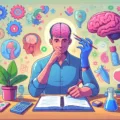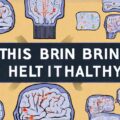Understanding Treatment-Resistant Depression
Depression is a complex condition that affects millions of people worldwide. While there are many effective treatments available, up to 30% of people with depression do not achieve remission with standard interventions.
When depression does not respond adequately to appropriate courses of at least two antidepressant medications, it is considered treatment-resistant. This means that the symptoms of depression persist at moderate to severe levels, significantly impacting a person’s ability to function.
What Causes Treatment Resistance?
There are several potential reasons why someone may not respond to depression treatment as expected:
- Incorrect diagnosis – Sometimes other conditions can mimic depression, such as bipolar disorder or chronic medical illnesses.
- Lack of treatment optimization – Medication dosages may be too low, or a medication trial may not have lasted long enough to work.
- Genetics – There seem to be genetic predictors and biological differences in people with treatment-resistant depression.
- Stressful circumstances – Trauma, grief, relationship problems, unemployment, poverty, and other stresses can interfere with recovery.
Evidence-Based Strategies for Treatment-Resistant Depression
The good news is that remission is still possible. Recommended strategies include:
- Reviewing the diagnosis and adjusting treatment accordingly
- Checking for undiagnosed medical conditions that could cause depression symptoms
- Optimizing medications – adjusting dosages, augmenting with additional medications, ensuring adequate duration of trials
- Psychotherapy – Especially cognitive behavioral therapy (CBT) or interpersonal therapy
- Brain stimulation treatments – Transcranial magnetic stimulation (TMS) and electroconvulsive therapy (ECT) can be effective options
- Vagus nerve stimulation – An implanted device that sends electrical impulses to the brain via the vagus nerve
- Ketamine – This anesthetic medication given intravenously has rapid, potent antidepressant effects for some people.
Integrative Approaches
Some data also supports natural remedies as complementary approaches for improved depression outcomes:
- Omega-3 fatty acids
- SAMe supplements
- Folate
- Vitamin D
- St. John’s Wort
- Light therapy
- Acupuncture
- Exercise
- Healthy diet
- Mindfulness meditation and yoga
Ongoing Support Is Critical
Working closely with a mental health professional is key to navigating treatment options. Getting adequate support, limiting stress, prioritizing self-care habits, and maintaining hope can also boost resilience.
For some people, depression symptoms may recur or persist chronically. Coping strategies and reasonable accommodations help manage ongoing limitations. Focusing discussion on capacities rather than deficits encourages a more empowering, compassionate approach.
FAQ
What percentage of people with depression are treatment-resistant?
Up to 30% of people with depression do not achieve remission with standard treatments like antidepressant medications and psychotherapy. This is known as treatment-resistant depression.
What are the most common medical causes of treatment-resistant depression symptoms?
Hypothyroidism, vitamin B12 deficiency, diabetes, chronic fatigue syndrome, and other medical issues can all cause or contribute to depression symptoms that resist standard treatments.
What kind of talk therapy helps treatment-resistant depression?
Cognitive behavioral therapy (CBT) and interpersonal therapy (IPT) have the strongest evidence supporting their usefulness for difficult-to-treat depression.
When do more invasive depression treatments like ECT and VNS become options?
Brain stimulation therapies like electroconvulsive therapy (ECT), repetitive transcranial magnetic stimulation (rTMS), and vagus nerve stimulation (VNS) are typically considered after people have exhausted medication options without adequate symptom relief.
Can I still recover from depression if several treatments have not worked?
Yes, remission is still possible. Optimizing medication regimens, exploring psychotherapy and brain stimulation, addressing health factors, reducing stress, and using self-care strategies can improve depression over time. Support groups also help people feel less alone.









